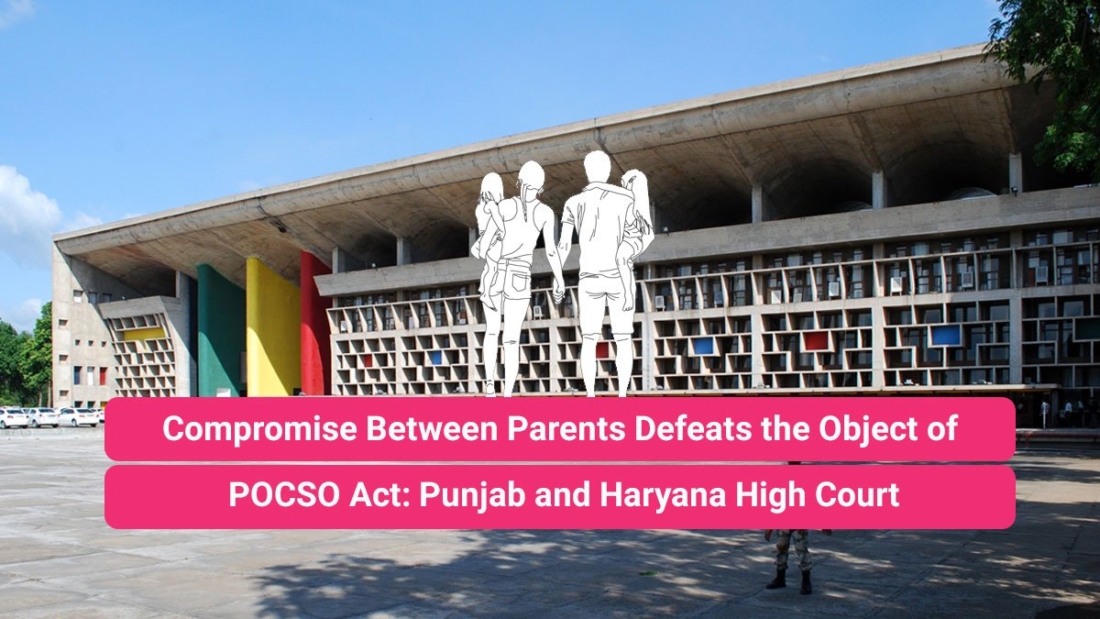The petitioner requested to quash the FIR registered under Sections 452 and 506 of IPC and Section 3 of SC/ST Act and Section 8 of the Protection of Children from Sexual Offences (POCSO) Act, 2012 ,. The question arose as to whether FIR registered for offenses punishable under POCSO Act could be quashed based on compromise exercising jurisdiction under Section 482 Cr.P.C.
OBSERVATIONS OF COURT
- The Bench of Justice Pankaj Jain found that an agreement entered into by a child or her parents that compromised the child’s dignity could not be raised to a status where it defeated the very object of the POCSO Act.
- Describing the object and aim of the Act, the Court stated, “The Preamble of the Act further declares sexual exploitation and sexual abuse of children as a heinous crime which needs to be effectively addressed”. The Court recorded that it is the duty of the State to make sure children are not abused, and that their childhood and youth are protected against exploitation
- It was further held that the power under Section 482 of the Criminal Procedure Code (CrPC) could not be exercised to defeat the purpose of an enactment that was brought into force to discharge a constitutional mandate and an obligation arising out of international conventions.
- About the compromise and the validation of agreement for minors the Court remarked that, “Any agreement/compromise executed by the child (till the age of majority) himself/herself as in the present case will be void ab initio and thus cannot be accorded validity. Parents cannot be allowed to compromise the dignity of a child by an agreement. Where ever and whenever in a society governed by rule of law the question will arise: who will protect from the protector? The only and obvious answer will be LAW.”
- The Court also cited the apex court judgment in State of Madhya Pradesh v. Laxmi Narayan and others, in which it was held that courts, before quashing proceedings in criminal cases had to consider the following:
- Nature and effect of the offense on the conscious of the society;
- Seriousness of the injury, if any;
- Voluntary nature of compromise between the accused and the victim; &
- Conduct of the accused persons, before and after the occurrence of the purported offense and/or other relevant considerations.
Finding that the offense in the present case was heinous, the Court found that it was not a fit case for quashing proceedings and the compromise could not result in quashing of the proceedings.
– Written by Vaishali Jain & Hamda Arfeen
 Cart is empty
Cart is empty 

